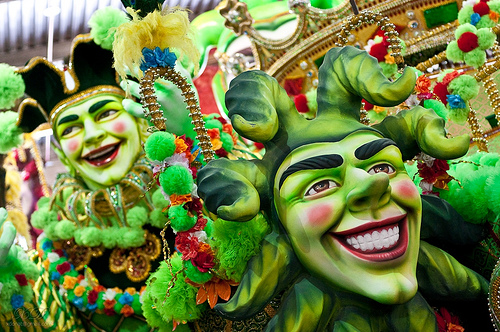
Photo Credit: Creative Commons
Most tourists heading to Japan expect to experience bizarre and perhaps even downright weird sights and sounds. Although the Internet and popular media exaggerates Japanese culture somewhat, the country is proud of its eccentricities and kooky nature. A visit to Japan can be very confusing, so it’s worth finding out about some of its quirks before you book your flight and take out your annual travel insurance. Here are 10 things you should expect if you ever choose to go to Asia’s quirkiest destination.
Bowing is Very Important
You probably know that bowing plays a huge part in Japanese culture, but the intricacies and subtleties of bowing can be take years to fully understand. For example, an informal bow is made at a 15 degree angle while a formal bow is at 30 degree angle. Also, if one person bows for slightly longer than expected, the other party will bow again in return. This can lead to a succession of gradually diminishing bows between two people.
Some Vehicles Sing
Don’t think you’re going crazy if you hear a truck or car singing in Japan. Some vehicles talk or sing when they are reversing, and police cars and ambulances say which direction they are going and thank other cars for moving out of the way.
Women Only Areas
It can be a common sight to see ‘women only’ signs in Japan. Some Internet cafes, hotel areas and apartments are strictly for women, and there are even pink train carriages during the morning rush hour which are a male-free zone.
Payment Etiquette
Many businesses and restaurants in Japan have a small tray to place cash into when making a payment. It can be considered rude to hand cash directly to the cashier if this tray is there, so make sure to use it.
No Tipping
Whether you’re paying a taxi driver or a waitress in a restaurant, remember that Japan does not have a ‘tipping culture’, and they may find it rude if you insist on giving them a little bit extra.
It Can be Hard to Find a Bin
Japanese culture takes pride in cleanliness, so it’s perhaps surprising to find that most of its major cities don’t have many rubbish bins in public. Opinions on exactly why there are so few bins are mixed (some say it is to combat terrorist bombs being planted in busy areas), but they can still be found in cafes, fast food restaurants and convenience stores (Konbinis). Just don’t expect them to be on every street corner.
No Eating in Public
If you start eating on a busy train or while walking down the street in Japan, expect to receive a few glares from passers-by. Many Japanese people consider it rude to eat in public. It is common to see people crowding around vending machines in Japan because they prefer to immediately drink and eat their purchases rather than do so while walking around.
Toilet Slippers
Most of us know that Japanese etiquette dictates that shoes are not to be worn inside the home so that dirt and germs from outside shoes do not touch indoor flooring and furnishings. However, you probably don’t know that this hygiene matter also extends to visits to the bathroom. Bathroom slippers must be changed into when going to the toilet, and they absolutely must not leave the bathroom and be worn around the rest of the house.
Speaking of Toilets…
Gadgets are big in Japan, and even the humble toilet cannot avoid being given the technology treatment. Many Japanese bathrooms and stalls have baffling electronic panels, and these often control the bidet, seat warming and deodorising functions of the toilet.
Surgical Masks in Public
Don’t be worried if you see someone wearing a surgical mask while going about their business. Many Japanese people wear them if they are sick and don’t want to spread germs or if they want to avoid catching something from a stranger.









